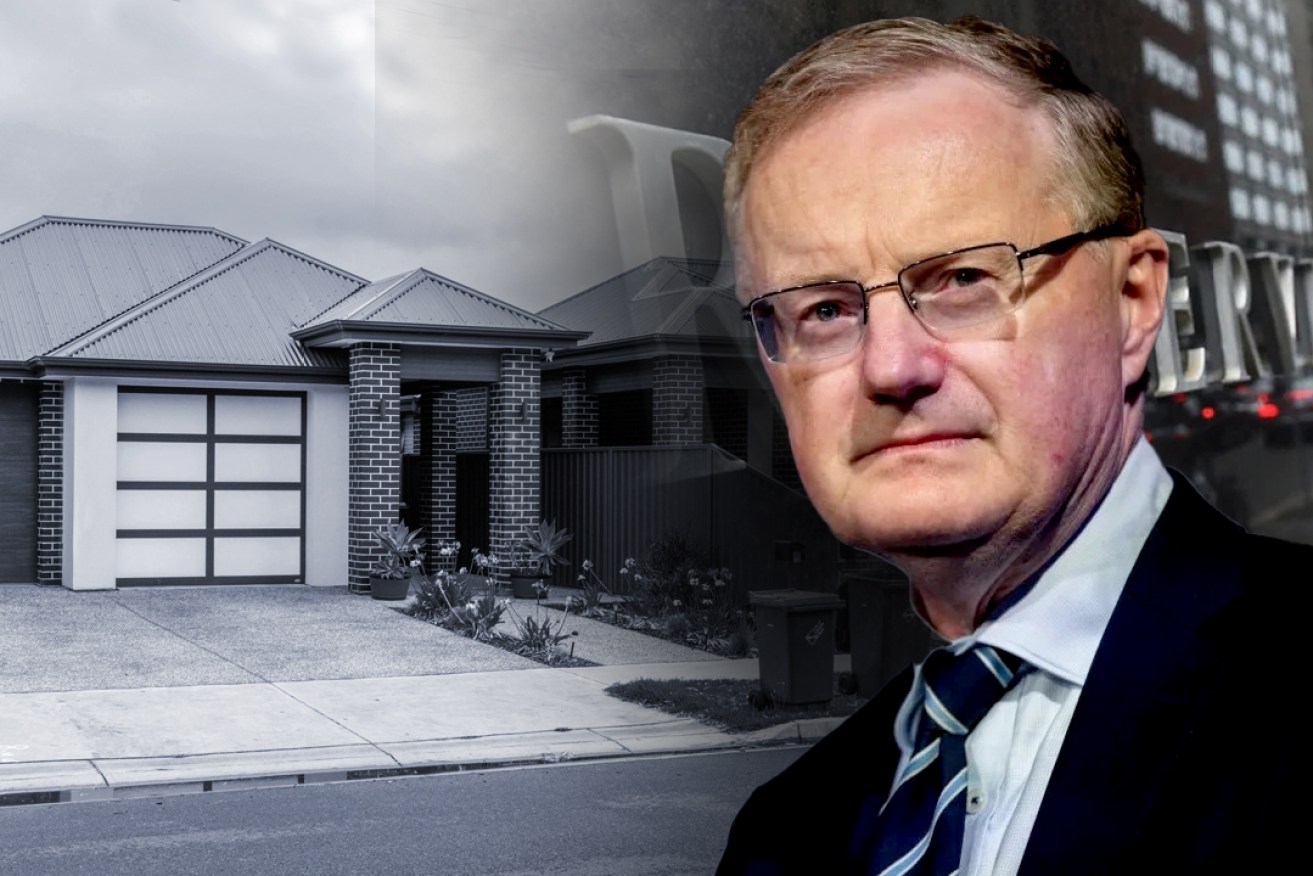Mortgage relief as Reserve Bank leaves interest rates on hold
The Reserve Bank has left interest rates on hold for April as the economy cools off – the first time in 11 months it hasn’t hiked rates in an aggressive campaign to tackle rising inflation.


Photos: Tony Lewis/Indaily and AAP. Image: Tom Aldahn/InDaily
The Reserve Bank board decision a short time ago leaves the cash rate unchanged at the March rate of 3.6 per cent.
The halt stops consecutive monthly rises which began in May 2022 when the rate sat at 0.1 per cent and last month hit its highest level since May 2012.
The decision to pause will offer welcome relief for mortgage holders, who have endured 10 interest rate hikes in a row that have added hundreds of dollars to the costs of servicing a mortgage.
But Reserve Bank governor Philip Lowe warned that more tightening of monetary policy may still be needed.
“The decision to hold interest rates steady this month provides the board with more time to assess the state of the economy and the outlook, in an environment of considerable uncertainty,” he said.
“In assessing when and how much further interest rates need to increase, the board will be paying close attention to developments in the global economy, trends in household spending and the outlook for inflation and the labour market.”
While the RBA has opted to keep interest rates on hold to allow it to observe the impacts of its handiwork so far, another hike was firmly on the cards as the board sat down for its most challenging rates decision since it started lifting rates last May.
Economists were divided on the non-conclusive data released ahead of the April board meeting, including signs of strong business conditions and ongoing tightness in the labour market.
But while these data sources pointed to resilience in the economy, weaker-than-expected inflation and flatlining retail spending suggested the slowdown was already underway.
After raising the cash rate by 25 basis points in March, Lowe said that more rises could be expected.
“The board expects that further tightening of monetary policy will be needed to ensure that inflation returns to target and that this period of high inflation is only temporary,” he said.
“In assessing when and how much further interest rates need to increase, the board will be paying close attention to developments in the global economy, trends in household spending and the outlook for inflation and the labour market.”
The Reserve Bank is determined to put a lid on household spending in order to rein in inflation to its target rate of two to three per cent. In December, inflation hit an annual rate of 7.8 per cent – the highest level since 1990.
The Commonwealth Bank in March predicted one more lift to the cash rate before pausing, while Westpac, NAB and the ANZ tipped two more hikes to take the cash rate to 4.1 per cent.
For mortgage holders, today’s pause will provide some relief for stretched household finances.
Analysis from comparison site Canstar showed another 25 basis points cash rate hike would have added $1051 to monthly repayments (compared to April 2022 levels) on the average $500,000 loan with 30 years remaining on the term.
RateCity said that a cash rate increase to 3.6 per cent would add an extra $77 to monthly repayments on a $500,000 loan, with total monthly repayments increasing by nearly $1000 – or more than $11,000 a year – since May.
Some observers had warned that the increasing burden on mortgage holders coupled with other cost of living pressures risks tipping the economy into recession.
Before this afternoon’s decision, an index showed falling confidence among those paying off a mortgage.
ANZ and Roy Morgan’s weekly index fell 2.1 points to 70.5 points, putting the cohort 7.2 points below renters and those that own a home outright.
The fastest round of policy tightening in decades has already added hundreds of dollars to mortgage repayments and another increase will ratchet up the pressure further.
Despite the modest 1.6 point uptick in overall consumer confidence to 78.2 points, ANZ and Roy Morgan’s weekly index remains stubbornly in depressed territory and has returned a below-80 point result for the fifth week in a row.
Three of the five confidence subindices increased, with ‘current economic conditions’ up 4.6 points, ‘future economic conditions’ up three points and ‘future financial conditions’ lifting 3.1 points.
Despite the improvement, ANZ senior economist Adelaide Timbrell said confidence in financial conditions, particularly current financial conditions, was now trending lower than it was during the start of the COVID outbreak.
New Canstar analysis shows the average would-be solo home owner would need to earn $165,695 a year to buy a home without falling into mortgage stress.
The average annual before-tax income is $94,000.
The research explored how much buyers needed to earn to afford a house with a 20 per cent deposit but without contributing 30 per cent or more of their after-tax income toward repayments, which is how mortgage stress is defined.
-with AAP




